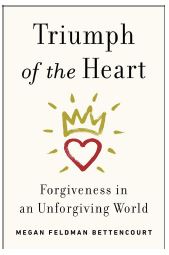In April my presentation was titled, ‘The Emotional Pandemic- What You Need to Know.” I spoke of an article in the Harvard Business Review titled, “That Discomfort You’re Feeling is Grief.” I shared the fact that we tend to associate grief with death, but that now it’s crucial to know that grief is, simply stated, the way we handle change. And we’re living in a time of drastic change- change that leaves us uncertain about our safety and our future.
Grieving the loss of our normal lives can manifest through feelings from mild disappointment and lower energy, to anger, anxiety, and even panic. Let’s look at the five general areas of grief:
- Denial, Disbelief, Dissociation
- Anger and Outrage (Protest- Wolves howl)
- Obsession and Rumination: where Anxiety comes in; Control
- Depression and Despair
- Acceptance (Forgiveness) and Effective Action
Most of us have one area we tend to fall into and are at risk of staying. Generally, women are more vulnerable to depression and men to anger. I think it’s the testosterone factor.
In my book, From Crisis to Creativity, the message is that every one of these stages has an energy that is moving us toward our own creative self-expression. When stuck in Denial, the artist knows he’s about to put color on the blank canvas. The author knows she’ll eventually write something on that blank page. And the gardner knows that the seeds planted beneath the dark soil in time will grow lush green plants.
In Denial, we’re simply incubating our next stage of growth.
Anger is the energy that moves us forward in life. Instinctively, anger gives us the adrenaline rush to outrun danger. In grief, it’s the outrage about a loss that has seriously impacted our life. Most important, anger is a drive that can not only move you forward, but can even move you to your life purpose.
Obsession– ruminating over details, can feel crazy-making; but after some length of time creates clarity and mastery over the situation
Depression– impacts immune system; anxiety and depression can lead to physical aches and pains and illness; but also leads to Rebirth
Acceptance- New possibilities; self-forgiveness- Take Action
Now 6 months later, Google reports that there are twice as many searches for “anxiety and panic” now than there were last year at this same time. So, we have to identify something else we’re all experiencing: Collective Trauma. Collective trauma is when entire communities or societies are impacted by traumatic events.
Here’s a list:
- COVID-19 and health concerns
- Constant news cycle
- Economic upheaval
- Financial stress
- Uncertainty
- Unemployment
- Election and political strife
- Black Lives Matter movement protests/counter-protests
- Kids at home/worries about their education
- Separation from family
- Social isolation and loneliness
- Lack of consistent leadership and guidance
- Lack of access to religious services; community groups
- Missing friends at work
- Worries about climate change, fires, Hurricanes
- Not being able to hug
I’ve listed 16 areas- the last one may be the most important. Years ago when studying aspects of wellness, I learned that humans should have 5 hugs a day!
Now, even when we have physical proximity, we’re not supposed to hug
That means we’re not getting the right amount of oxytocin, the nurturing hormone, released into our system. This is the hormone that new mothers release when they’re nursing their babies. We need that nurturing. We’re getting lots of cortisol release- the stress hormones- that lead to increase in physical symptoms and illness. Suicide rate is spiking; men over 65 biggest group- and sadly, dramatic increase in teen suicides and overdoses currently.
- What should you do now?
- Provide balance in your life, physical movement, yoga, walking, exercise; dancing; keep a schedule of these activities
- Monitor your thoughts– 8 year old Violet: Compulsive cleaning; worries about getting sick; nightmares. 1) Fairy tales- scary things; brave; never give up; will always have help; happy ending 2) Brain-
Big brain- Upstairs brain (smart, strong, confident) -Positive thoughts) Little child brain- Downstairs brain (fearful, afraid, nightmares; scary thoughts) Must remember to stay in the upstairs brain. Always give ourselves positive thoughts.
- Practice optimism- studies of resilient people, those who survive and thrive after extreme abuse or brutality are optimistic. They have a sense of self-efficacy; a belief that they could be an influence for good- even in a dire situation. Cog. Self-therapy; thought stopping
- Start a journal: Write what you’re committed to in the next few yrs write a vision statement; rekindle your dreams; write 2 actions you’ll take to manifest these dreams
- Meditation and/or prayer; inspirational reading
- Get grounded work in your garden, walk in the grass
- Have a healthy diet, drink water, take your vitamins
- Breathing exercises; easy one: love in, fear out Heat Math Inst.
- Bodywork- take care of your body: long shower, get a massage, try acupuncture
- Reach out to a therapist, expand your emotional growth
- Speak with your financial advisor, review your plans, be reassured
- Try some new creative endeavor: after one of my ski accident w broken shoulder, head injury- so impaired (no reading, TV- took a class In drawing and watercolor painting
- Lastly, if you’re in a close relationship where you can hug, make sure you’re getting your 5 hugs a day! Even from your dog!





 Georgia O’Keefe said, “The days you work are the best days.” She was referring to her art, of course, which was her passion. In this New Year, let’s begin to view all of our work as our art. In doing so, every activity in which we invest our passionate energy will become our personal creativity.
Georgia O’Keefe said, “The days you work are the best days.” She was referring to her art, of course, which was her passion. In this New Year, let’s begin to view all of our work as our art. In doing so, every activity in which we invest our passionate energy will become our personal creativity. to be a painter rather than a doctor. Following each of more than thirty operations, she made bold representations of herself, each one nearly shouting that she lived, despite her wounds and her physical and emotional pain. She lived and lives on through her gifts of art.
to be a painter rather than a doctor. Following each of more than thirty operations, she made bold representations of herself, each one nearly shouting that she lived, despite her wounds and her physical and emotional pain. She lived and lives on through her gifts of art.